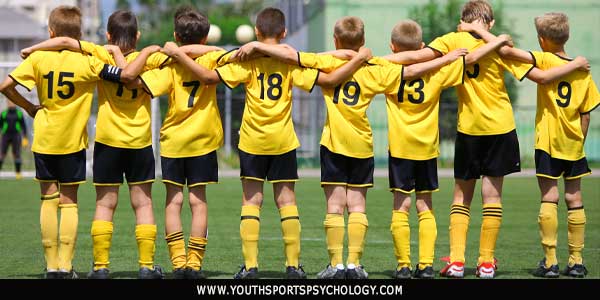
The 3-Point Pre-game Plan for Sports Kids
Creating pregame plans helps kids prepare well for games and often helps lift them to success–in sports and other areas of their lives.
Jazlyn Pipkins, founder and owner of Jazletics LLC and a peak performance coach has developed a 3-part plan for the sports kids she advises. She recently described it as a guest on our Ultimate Sports Parent podcast.
“Most athletes don’t have a game plan, which creates even more anxiety,” she says. But when kids have a plan, they know what to do when challenges arise.
The pregame plan includes meditation, visualization and affirmation, she says. Pipkins suggests that sports kids do two minutes of each exercise.
Sometimes, she asks young athletes to do this together, on a bus on the way to a game. This can be a team bonding experience. But they can also focus on the pregame plan when they’re alone, or choose a corner of a court or field to work on it.
The first step, meditation, involves focusing on positive thoughts, favorite songs or favorite quotes, anything that hypes kids up and gets them in the mood to play, she says.
The second step, visualization, is all about visualizing success or meeting goals. That could be making the last point in a game, or making a serve that ties up a game.
The third step–affirmation–involves saying out loud, with a confident tone, phrases like “I can do this. I will win this game. I am a good basketball player.”
Pipkins also stresses the importance of sports kids breathing deeply while they’re meditating. This reduces anxiety.
It’s also critical for kids to think of possible challenges and visualize how they would address them. “They need to visualize themselves in actual game scenarios that they fear and tell themselves to respond with positivity,” she says.
Kids also need to understand that mastering a pregame plan requires lots of practice.
Pipkins’ three-step plan has been helpful to her clients in numerous ways, she says.
“This makes athletes feel that they can go into the game prepared for everything and everybody. It also builds maturity. Athletes find that they’re not defined by their mistakes, but how they are prepared for them,” she says.
Listen to the Podcast with Mental Coach Dr. Cohn:
Mental Performance Coaching for Youth Athletes
It’s difficult for sports parents to watch their kids under-perform in sports and lose self-esteem due to fear, doubt and tentativeness. It’s hard to stand idle and watch.
The solutions are not obvious. However, you, as a parent, can learn how to respond to your athletes’ fears, doubts, and frustrations. You can develop happy, successful kids who are “mentally tough” in sports – and life!
One-on-one sports psychology coaching is the fastest and most effective method to improve your athletes’ mental game, boost their performance, and make lasting changes. And as a bonus, parents learn what to say to help young athletes feel confident and thrive in sports. Please call us at 888-742-7225 with your questions.
Please contact us today at Peak Performance Sports to learn more about individual mental coaching programs for serious young athletes on a mission to greatness.
